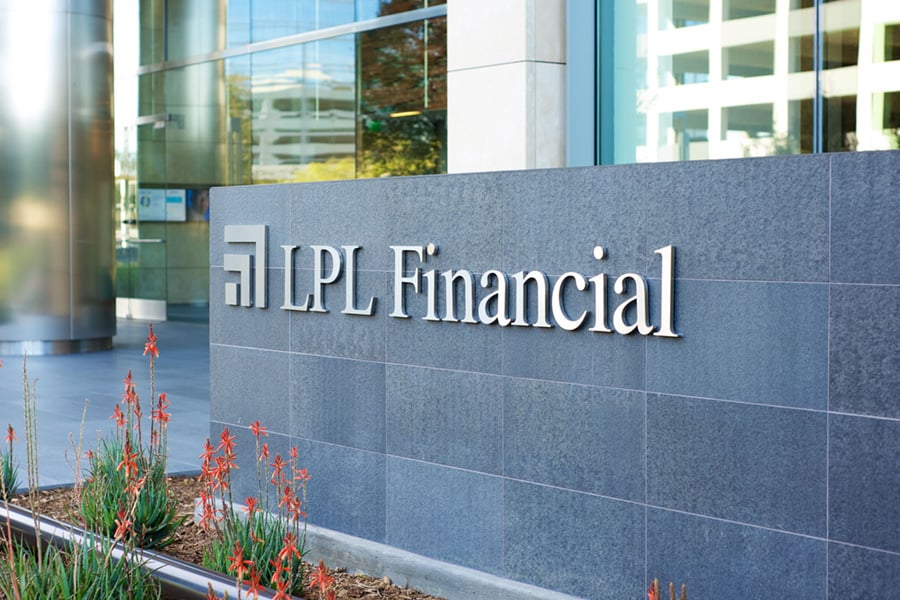

LPL Financial is shutting down sales of some investment products that contain less-liquid and hard-to-price assets such as real estate.
After blocking sales of eight nontraded real estate investment trusts on Monday, the nation’s largest independent broker-dealer extended that policy to include several publicly traded property interval funds.
Limiting access to less-liquid investments was described as a prudent strategy at a time when prices on assets, such as real estate, are likely to be impacted by economic fallout from the COVID-19 pandemic.
“It makes sense, if you look at portfolios of interval funds, they will be nontraded REITs and institutional property funds that are all subject to the same risks related to these markets,” said Jacob Mohs, manager of the Interval Fund Tracker website.
“It’s hard to rationally value those assets because there’s no activity in real estate right now,” he added.
LPL declined to provide details around the decision or on the specific funds, but the company did confirm the decision in an emailed statement from Rob Pettman, executive vice president of products and platforms.
“Due to the nature in which real estate is often valued, and out of an abundance of caution, LPL decided to temporarily suspend new purchases of certain products. These suspensions are not the result of any action taken by the product sponsor and instead are directly correlated to the market dislocation. LPL hopes to offer these products again soon as we gain a better understanding of the valuations of the underlying assets.”
Mohs described LPL’s strategy as “throwing up the caution flag and trying to avoid any future lawsuits by investors who might be overpaying” for assets that are going to be difficult to price in the current market environment.
“Many of the property funds are funds of funds, so there are several layers of uncertainty,” he added. “If you can’t value the commercial property you can’t value the shares of the funds holding that commercial property. LPL’s decision is defensible and fair, because there’s going to be a wide divergence in how the underlying real estate performs.”
Interval funds are so named because they are required to repurchase shares at fixed intervals to provide investor liquidity.
The interval structure is a kind of closed-end fund that typically holds less-liquid assets, which is why portfolio redemptions are typically limited to 5% of total fund assets per quarter, divided amongst the investors requesting to redeem.
While it makes sense for companies like LPL to restrict sales at a time when the value of the underlying assets might be difficult to price, interval funds are uniquely suited for this kind of volatile and uncertain economic environment. The structure prevents investors from panic selling, which prevents the portfolio managers from having to sell at fire-sale prices.
“Right now, LPL is going to be extra cautious because brokers have had issues in the past with nontraded REITs,” said Dick Pfister, founder and president of AlphaCore Capital.
“It’s hard when you’re trying to create a rule and understanding across thousands of advisers because interval funds are a great structure and what LPL is doing is prudent,” he added. “But they have to make sure the investor understands the structure and has an expectation of what can happen in a time like this.”

The approval of the pay proposal, which handsomely compensates its CEO and president, bolsters claims that big payouts are a must in the war to retain leadership.

Integrated Partners is adding a husband-wife tandem to its network in Missouri as Kestra onboards a father-son advisor duo from UBS.

Futures indicate stocks will build on Tuesday's rally.

Cost of living still tops concerns about negative impacts on personal finances

Financial advisors remain vital allies even as DIY investing grows
RIAs face rising regulatory pressure in 2025. Forward-looking firms are responding with embedded technology, not more paperwork.
As inheritances are set to reshape client portfolios and next-gen heirs demand digital-first experiences, firms are retooling their wealth tech stacks and succession models in real time.
